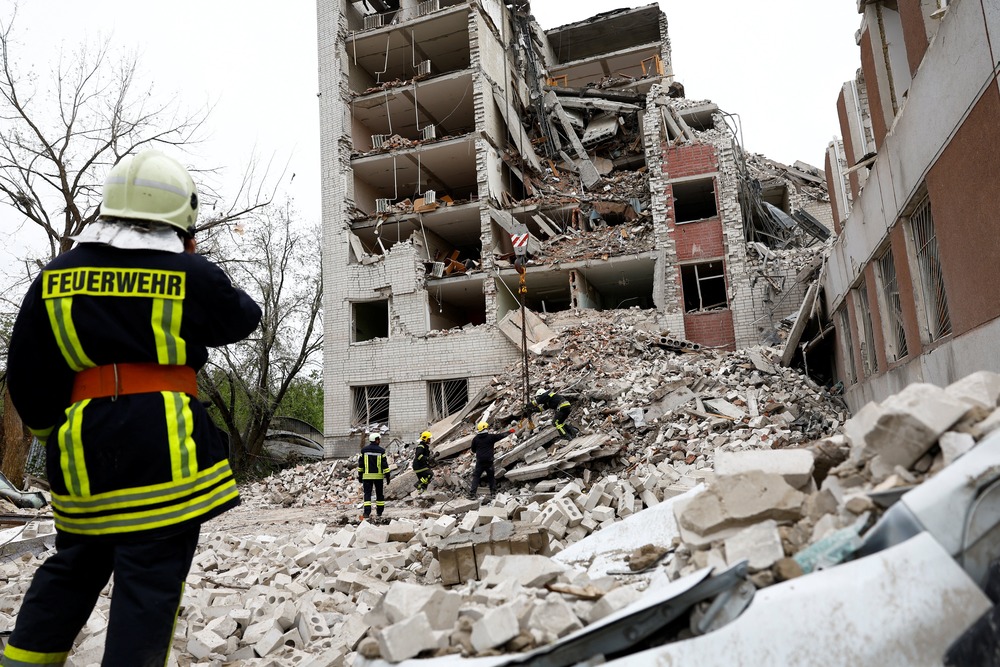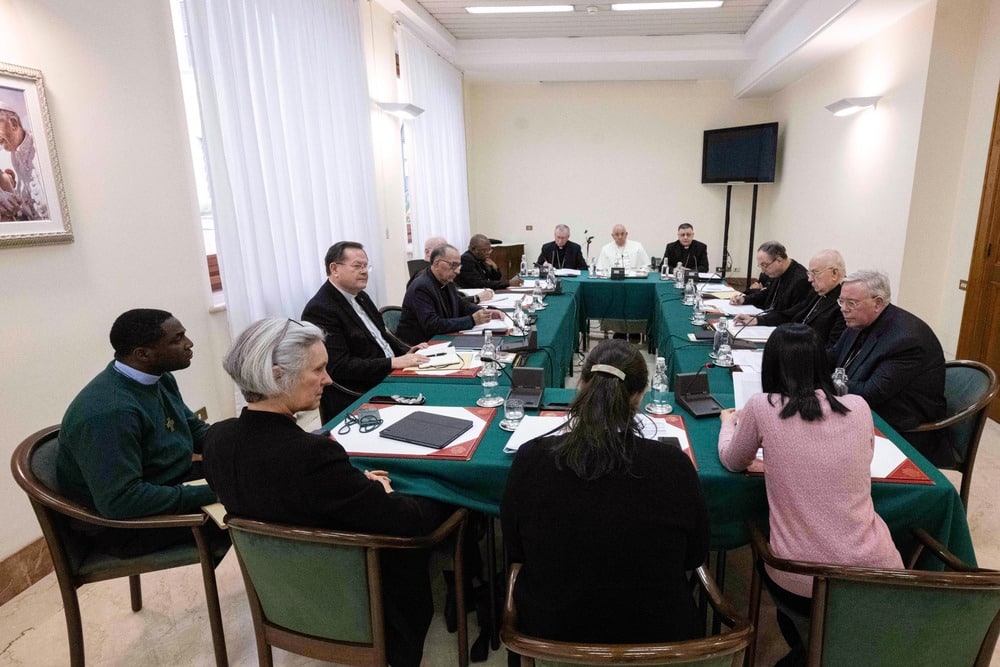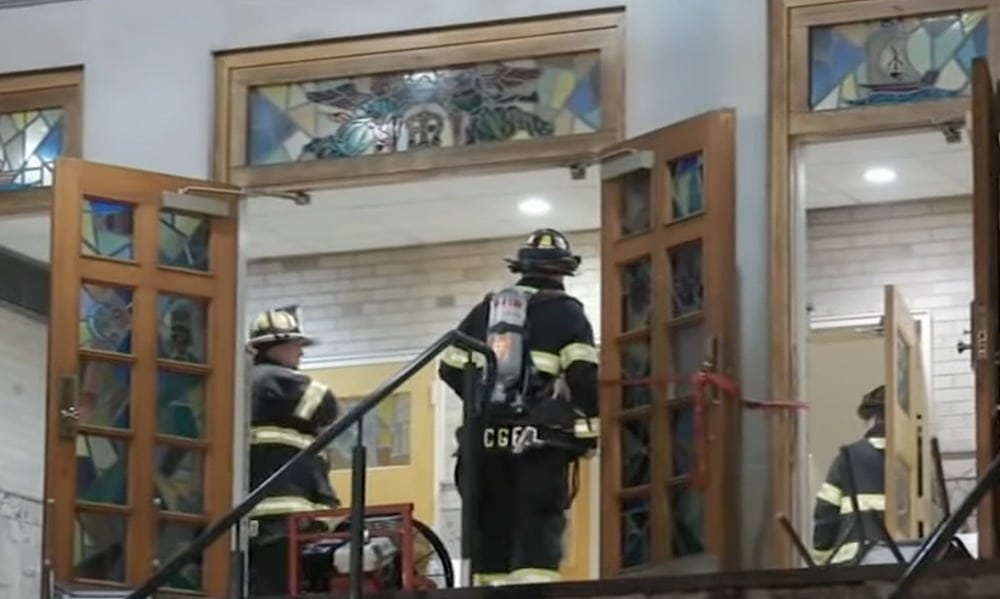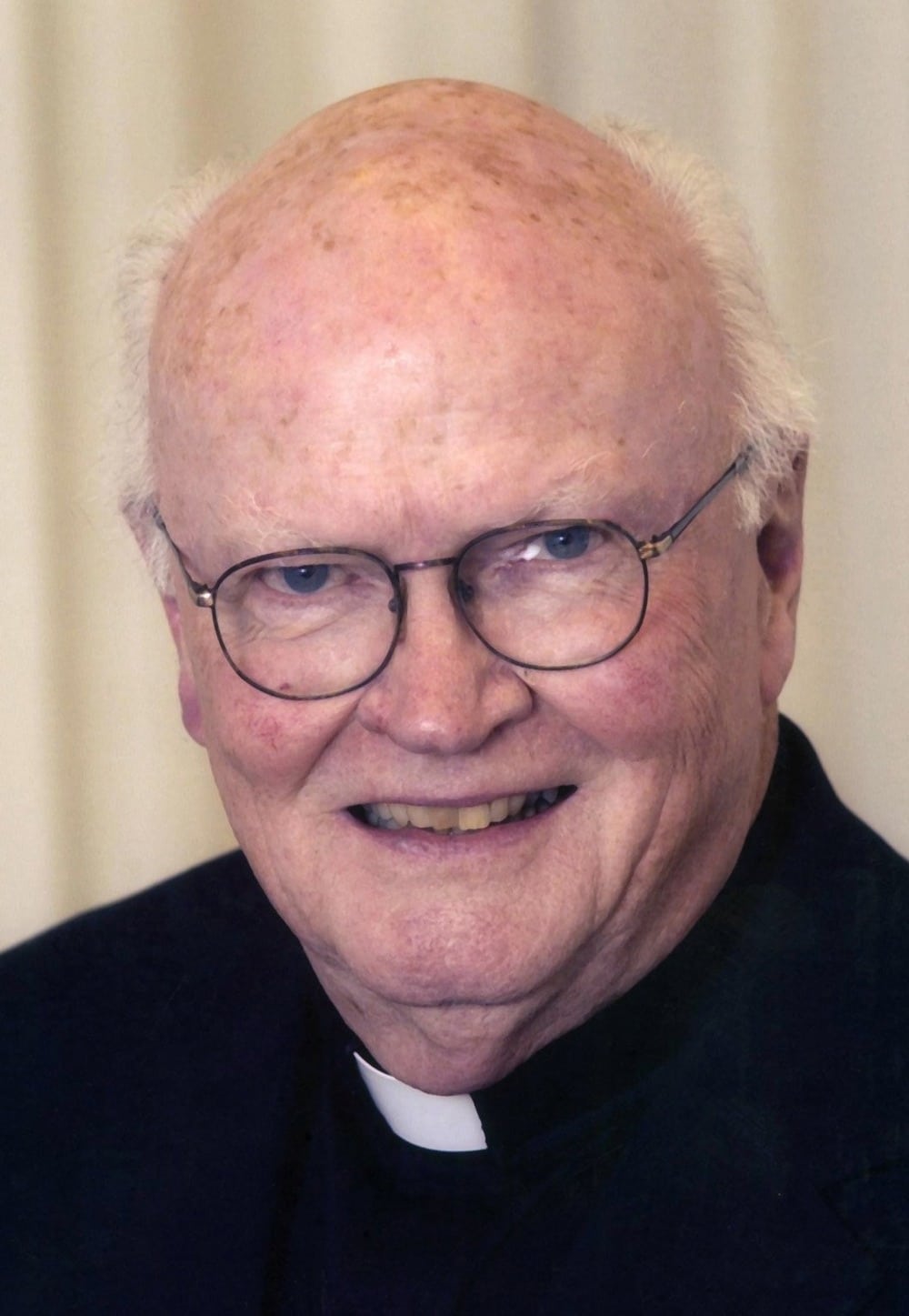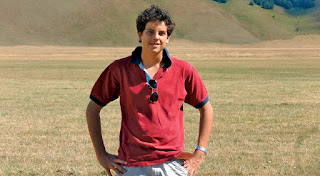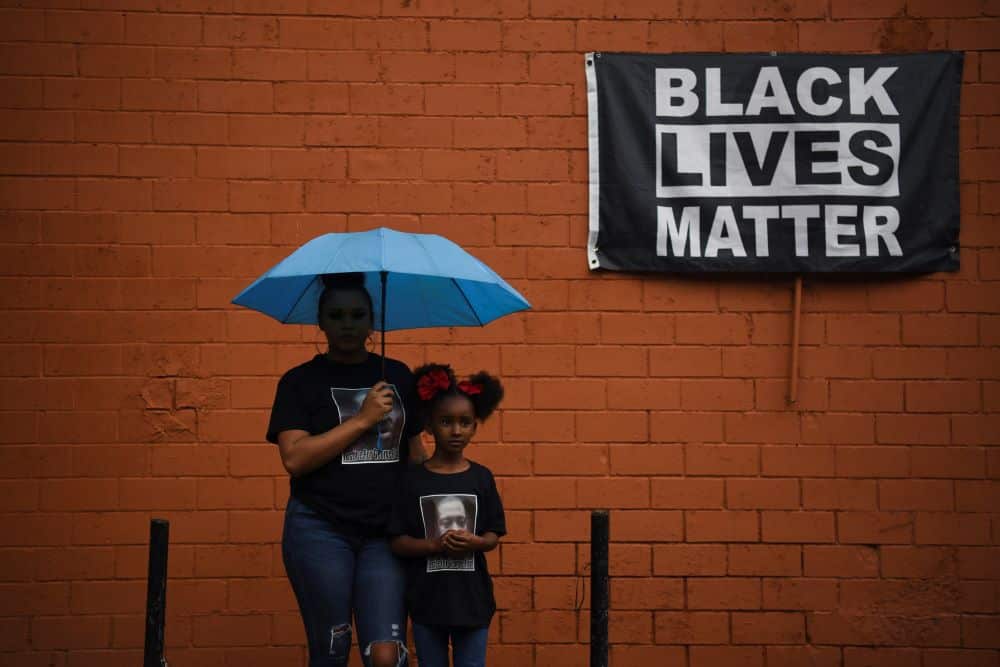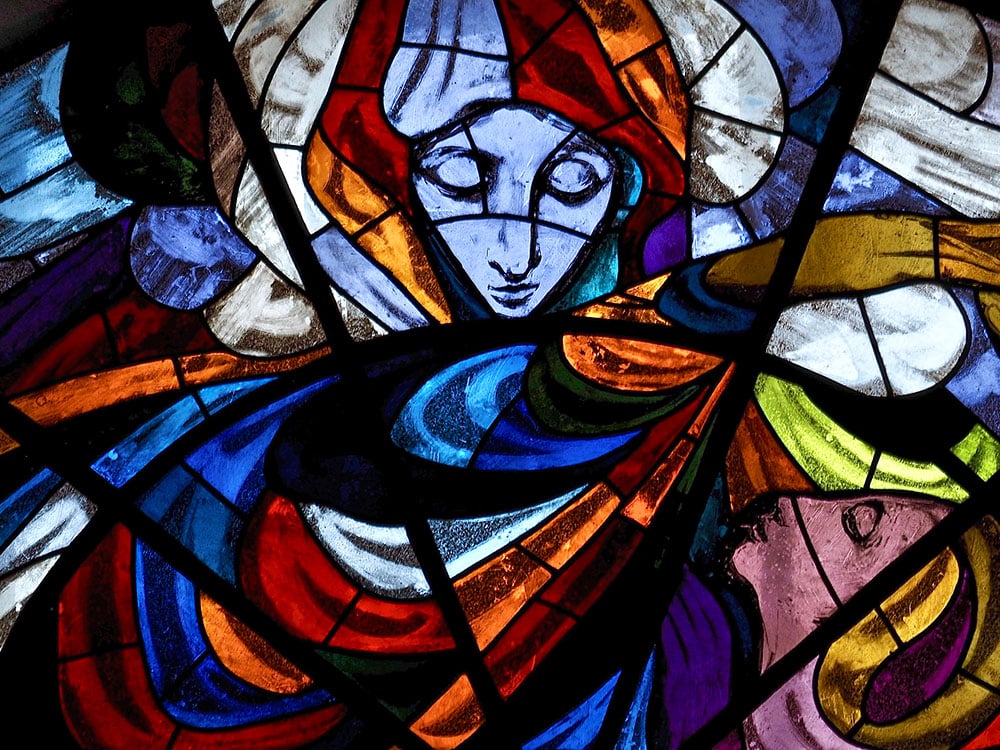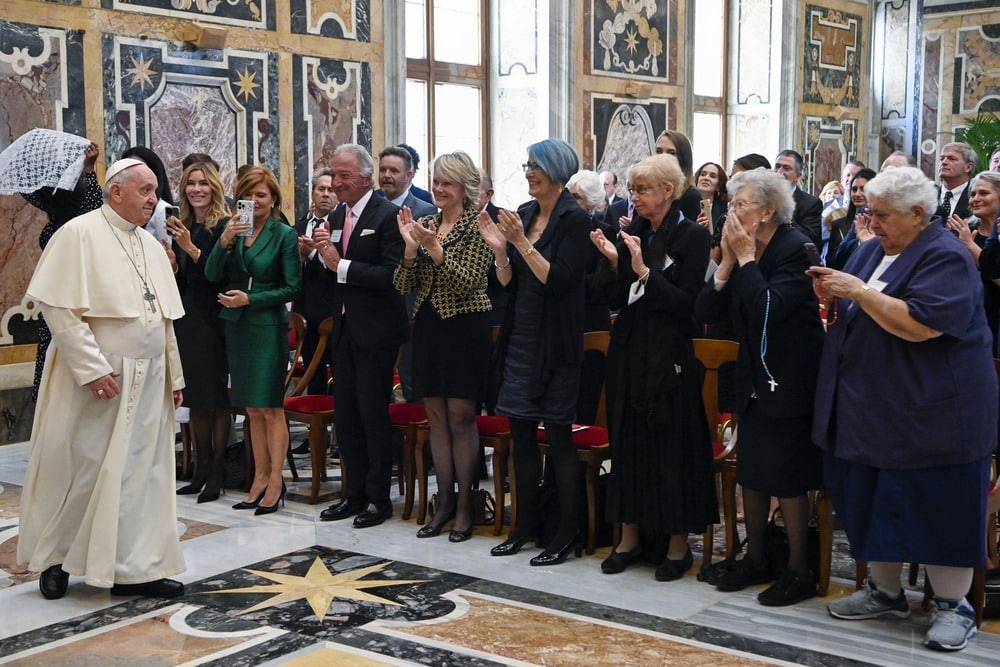
Matty Giuliano is the kind of chaplain who doesn’t mind if you drop an f-bomb mid-sentence.
The animal cruelty officer-turned-interfaith animal chaplain from Queens, New York, wants everyone he serves to feel at ease, nonhumans included. And part of his ability to connect with those of all backgrounds comes from the authenticity of his own dynamic personality.
Giuliano, 50, lives in Monmouth County, New Jersey, with his wife, four dogs, three ferrets and one cat. He drives a car with the license plate CHPLAIN, speaks with an unmissable New York accent and has multiple credenzas brimming with St. Francis collectibles.
« It’s like walking into a monastery, » he jokes.
After a decade of over 2,000 often gruesome animal cruelty cases, in 2015 Giuliano traded his badge for a stole and began volunteering as the animal chaplain for the Monmouth County SPCA. There, Giuliano is in his element — blessing animals (including pigeons), conducting animal funerals, offering bereavement counseling and providing the kind of support for SPCA volunteers and staff he once craved.
« Matty, as the chaplain, has brought peace and harmony to the hearts of many, many pet owners, » said Ross Licitra, executive director of the Monmouth County SPCA. Barbara Lovell, associate executive director of the Monmouth County SCPA, added that Giuliano’s support is « key, » particularly during the summer when the intake period is intense.
« Not only is he watching out for signs of anxiety or grief during these moments, he has worked right along beside us in crisis — such as unloading dogs from trucks arriving back from hoarding situations, » said Lovell.
Giuliano grew up in a 600-square-foot apartment in the Electchester housing project in Queens. The only child of his Jewish mother and Italian Catholic father, he grew up attending a Unitarian Universalist congregation on Long Island. Though Giuliano said his Jewish grandmother mourned his lack of a bar mitzvah, he credits Unitarian Universalism for introducing him to several different religions.
« I got to form a much broader spiritual background than a lot of other people get to experience, » said Giuliano.
Dogs weren’t allowed in the apartment, so his family had three cats: Samson, Delilah and later Bathsheba. « They were Old Testament pussycats, » Giuliano quipped. By 1998, Giuliano had moved to the New Jersey suburbs and graduated from Rutgers University, and in 2005 he took a gig as an animal cruelty officer.
Often, Giuliano recalled, the cases were seasonal — pets left to suffer in extreme heat or cold. He remembers the man who left his dog in a hot car for hours while fishing at the beach; the guy who jumped out of a second-floor window to avoid arrest after advertising dogfighting; the woman who had over 350 dead birds in her house.
« We had to wear Tyvek suits, » Giuliano remembered.
By 2013, the terrible things Giuliano witnessed left him longing for peace. Gradually, he began to embrace Catholicism, and was especially drawn to St. Francis of Assisi, patron saint of animals.
« He’s who I would turn to, since we didn’t have anyone in the agency to go to, » Giuliano told Religion News Service. « I saw s— you couldn’t imagine. »
Giuliano found comfort in both prayers to the saint and the stories about him — particularly the tale of the Wolf of Gubbio, where St. Francis rescued both a village and the wolf terrorizing it.
Then, in August 2013, Giuliano’s longtime dog Remy was diagnosed with lymphoma and died a few months later in January 2014.
« That was the big push that led me into wanting to be the chaplain for Monmouth County SPCA, » said Giuliano. « I felt compelled to find out more about how I could be a spiritual service to these animals, and to the people who serve them. »
After learning about animal chaplains online, in 2015 he enrolled in an animal chaplain program through Emerson Theological Institute, a California-based organization grounded in New Thought philosophy. He also obtained two certificates in bereavement counseling and became ordained online through the Universal Life Church.
These days, Giuliano goes to the Monmouth County SPCA animal welfare facility two to three times a week, making himself available to the staff and volunteers.
« I had a cat who stopped eating, and we were sure this was it for the cat. I had Matty bless him, and don’t you know, the next day he started eating again, » said Ruth Schwartz, a feline specialist at the SPCA. « I mean, it was as if it was some sort of miracle. »
Giuliano also looks out for the animal cruelty officers at the Monmouth County SPCA, taking them out to dinners and providing spiritual support on an ad hoc basis.
« He’s always somebody you can count on, » said Mike Goldfarb, chief of human law enforcement at the Monmouth County SPCA. « And he’s good to talk to for a variety of reasons, not just spiritual support and SPCA knowledge, but just a good overall person. … We have a deal: He’s doing my funeral, but I hope not for another 30, 40 years. »
Giuliano offers pet loss support and funerals free of charge, and each year on Oct. 4, World Animal Day and the feast day of St. Francis, Giuliano hosts an interfaith event where people bring their pets to receive a blessing and prayer in their own faith tradition. He also visits the Monmouth County SPCA and offers prayers and treats to the hundreds of animals in their care.
« I know there are plenty of people out there who believe animals have no souls, » said Giuliano. « I cannot accept one of God’s creation is, spiritually, the equivalent of a cup of ice cream. »
Giuliano also offers grief counseling to people across the country. In June 2019, Bill Keys, a retired member of the Air Force, connected with Giuliano by calling a pet loss support hotline after the passing of his 15-year-old dachshund, Duffy. Giuliano’s prayers and presence, he said, conveyed God’s love for animals. They spoke at least once a week for several months and still speak today.
« I can’t put into words the impact that Chaplain Matty had in helping me work through the grief, the loss, of Duffy, » Keys told RNS.
In recent years, Giuliano’s animal chaplaincy has taken an unexpected turn. Though he long considered himself a « traditional dog and cat guy, » in August 2018 at the SPCA’s annual « clear the shelter » event, he met and adopted a ferret he named Musky. Giuliano has since published two children’s books, « My Name is Musky, » and « Stubby’s Story, » after his second ferret. The proceeds are donated to animal welfare causes.
« It became a huge success in the ferret world, because there aren’t any ferret children’s books, » said Giuliano. « Cats, dogs, bunnies? Absolutely. Ferrets? None. So Musky ended up creating a social media ferret empire. Musky has over 10K followers on Facebook. »
Every day, Giuliano drafts posts detailing the antics of his pet ferrets. And to his surprise, doing so has become an extension of his ministry — people from across the country message him to share about their struggles and their appreciation brought by the page, which has become an online community.
In 2022, the New Jersey state Senate passed a resolution honoring Musky the Ferret. New Jersey Sen. Vin Gopal, who has worked with Giuliano on animal welfare legislation, told RNS he initiated the resolution to « recognize all the great work (Giuliano) was doing to protect ferrets and other animals. » Giuliano is currently partnering with Gopal and Sen. Michael L. Testa Jr. to pass a resolution that would mandate all animal testing facilities in the state make cats, dogs and ferrets used for testing or research available for adoption.
Giuliano says the principles of St. Francis — poverty, chastity and obedience — continue to guide his work and life, even amid personal hardship. Musky died in 2022 and it was devastating, Giuliano said, but he was also comforted by the condolences he received from around the world. People attended Musky’s funeral from as far away as Chicago.
« It’s been a remarkable journey, » said Giuliano. « I feel that it’s my connection with St. Francis that’s allowed me to do all that I’ve been able to do for the animal welfare world. »
